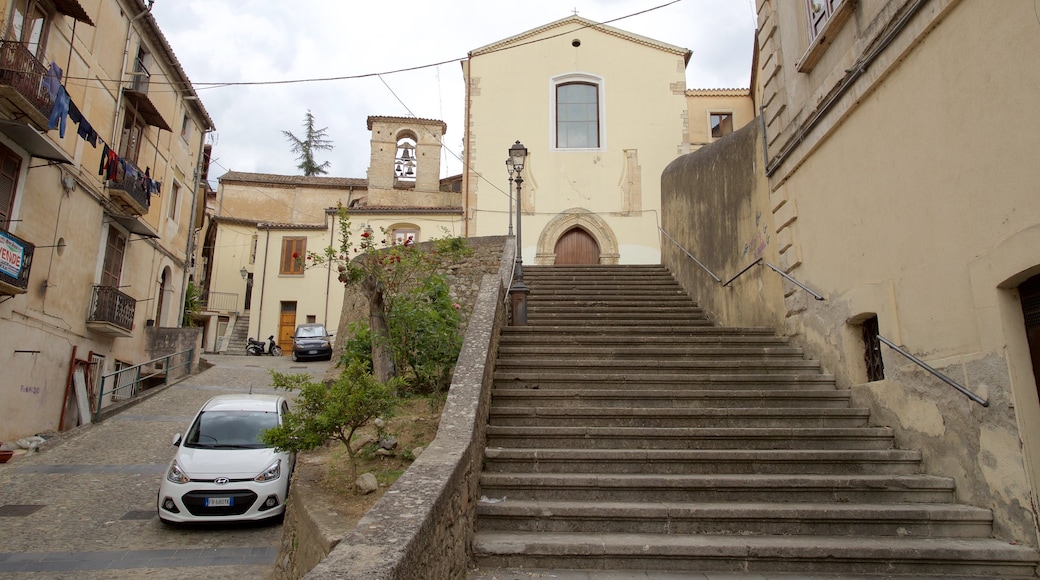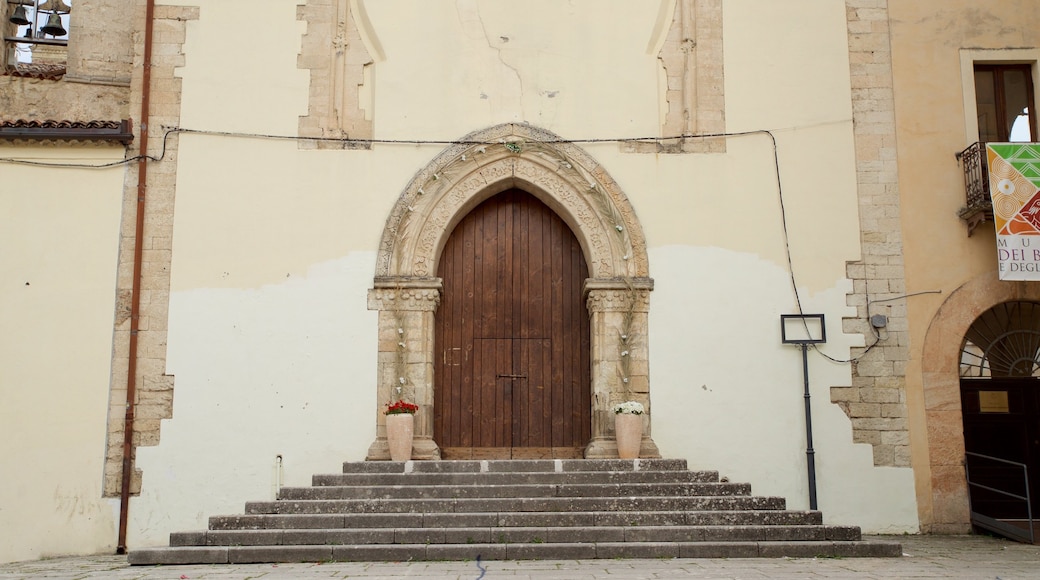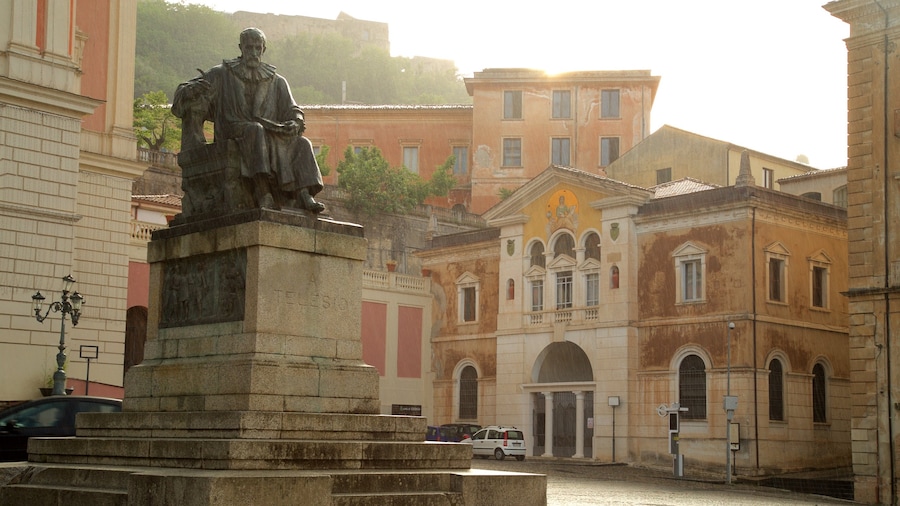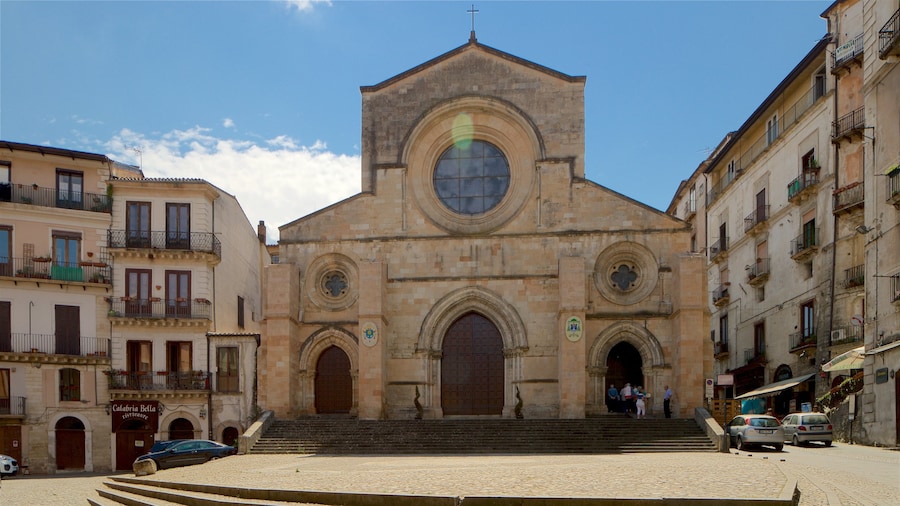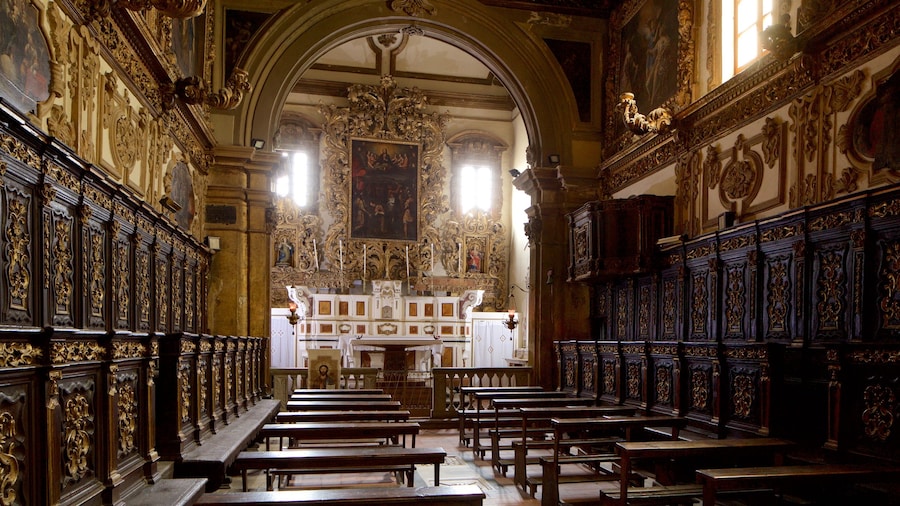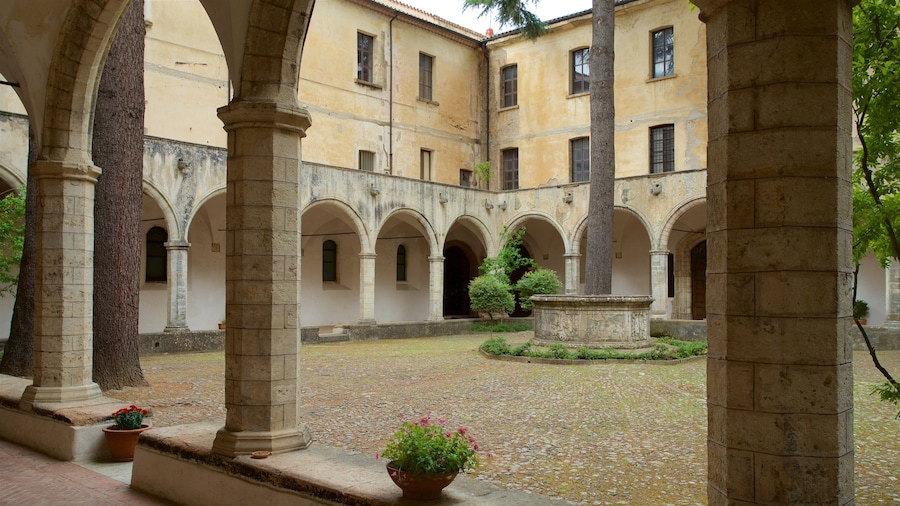Admire the simple design of this modest Baroque beauty, which features an elegant archway and a single nave decorated with ornate woodcarvings.
Cosenza’s Church of Sant’Agostino has a modest façade that shows the more subdued side of Baroque architecture. Contrastingly, the church’s interior is a vivid example of the period’s splendor. Built in 1753, the church recounts some of the city’s fascinating history. Find out how the church and its adjoining monastery were used over the last few centuries and admire a beautiful collection of religious relics.
Spend some time examining the church’s exterior. Comprised of a single-fronted façade, the church has an arched stone portal inscribed with Gothic lettering and floral motifs. The 16th-century church that originally stood on this site was founded by the Augustinians, but was razed by an earthquake and fire in 1640. The church you can see today was rebuilt in the 18th century.
Step inside the front doorway and begin exploring the single-nave structure. Wander down the aisle and admire the sumptuous decorations and artworks that adorn the interior. Highlights include a 17th-century statue constructed from gold-plated wood and paintings of the Holy Family. At the end of the aisle, you’ll find a series of awe-inspiring altars. The altar on the right features intricate mosaics, while the niches alongside contain exquisite circular frescoes.
Check out the high altar, which displays a crucifix and a 16th-century marble statue depicting Madonna and Child. Admire the carved bas-reliefs, which show monks, bishops and buildings. Continue to the Baroque chapel to find a series of frescoes.
Next to the church, look for the old cloister. This building became a military barracks and a jail in the 19th century, but now hosts the Brettii and Enotri Museum.
The Church of Sant’Agostino is located on Cosenza’s southeastern edge. It is less than a 20-minute walk from the Centro Storico (Old Town). The church is open daily however, be sure to respect worshippers when exploring the interior. Time your visit around the regular services. Visit the church as a part of your walking tour around the Old Town. Across the river from the church, admire views of the hilltop Castello Normanno Svevo.
